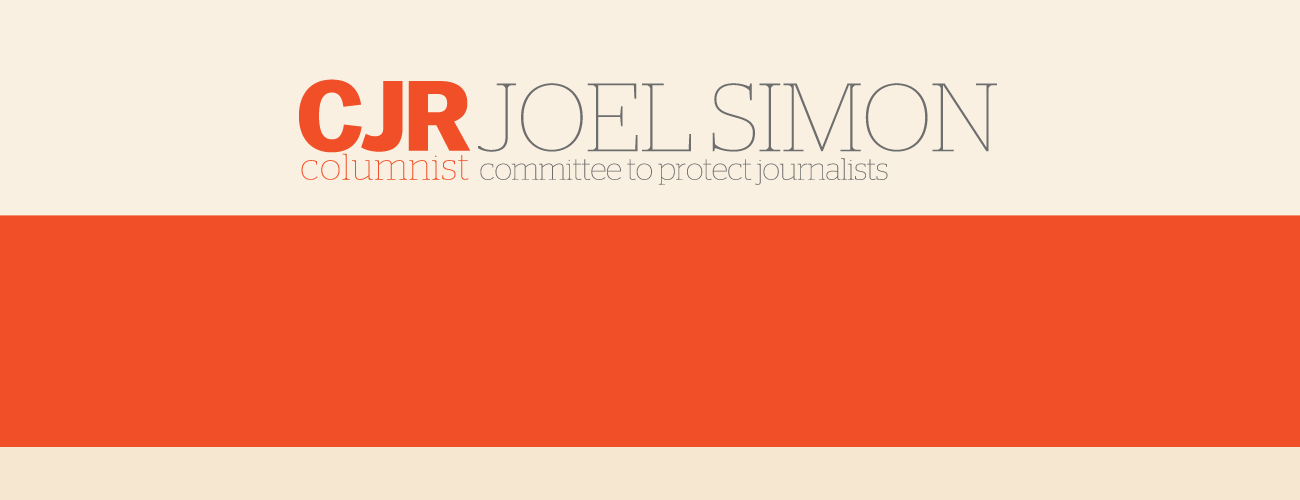Sign up for The Media Today, CJR’s daily newsletter.
Turkey’s president would not be in power today had he succeeded more fully in his efforts to curtail critical media and control online speech. That fact gave a ray of hope to some of his critics that President Recep Tayyip Erdoğan might realize what saved him and soften his inclination toward censorship. But Erdoğan quickly shut the door on such optimism Wednesday with a new crackdown and declaration of a state of emergency.
On the night of last Friday’s coup attempt, rebel soldiers took over state broadcaster TRT and forced the anchor to read a statement at gunpoint. But the internet and the mobile network remained under the control of government loyalists. They used a nationwide blitz of SMS messages to mobilize opposition to the coup. Erdoğan himself addressed the nation through a Facetime interview broadcast on CNN Turk, a joint venture between Time Warner and Turkey’s Doğan Media Group–an organization the Erdoğan government has systematically persecuted through massive tax penalties.
In the last five years, Erdoğan has led a systematic media crackdown, making Turkey for a time the world’s leading jailer of journalists. He told a CPJ delegation that met him in October 2014 that he is “increasingly against the internet every day.”
Would his experience during the coup soften these views?
Writing in The New York Times, contributing writer Zeynep Tufekci noted, “The role of internet and press freedoms in defeating the coup presents a significant opportunity. Rather than further polarization and painting of all dissent as illegitimate, the government should embrace real reforms and reverse its censorship policies.”
Yusuf Muftuoglu, an advisor to former president Abdullah Gül and later to Erdoğan, told me, “I think his views will gradually soften about the value of the internet. Erdoğan is a man who learns from experience, rather than from theory.”
But any hope the Turkish government would tamp down its relentless media crackdown was dashed with Erdoğan’s three month state of emergency, giving him a free hand to make laws without legislative approval or judicial review and suspending constitutional and international legal protections, including those guaranteeing free speech.
In the days following the coup, the Turkish media were not subjected to the same kind of firings, jailings and other pressures as the military, the judiciary, and the academy, but this was likely because the media had already been purged over the years, putting Turkey’s once diverse, if polarized, media largely at the service of the government.
The media crackdown in Turkey has responded to different perceived threats at different moments.
In 2012 and 2013, Turkey jailed dozens of journalists linked to a sprawling alleged coup plot called Ergenekon with little evidence and no due process. Journalists sympathetic to the Kurdish cause were also jailed in an effort to force the Kurdish separatists to the negotiating table. Kurdish journalists were released as negotiations moved forward, but rearrested once they collapsed. Today, as conflict rages in Turkey’s Southeast, at least 20 remain in jail.
Following the 2013 Gezi Park protest, in which organizers used social media to coordinate action and circulate information outside the traditional media, the government sought to curtail online speech, including through a ban on Twitter
During his first decade in power, Erdoğan had the support of the Gülen, or Hizmet, movement led by Fetullah Gülen, a Muslim cleric who is living in exile in Pennsylvania. Then in 2013, Gülen split with Erdoğan, causing the government to target his movement’s supporters, especially in the judiciary and media.
In March, after obtaining a court order, the government raided the leading national daily Zaman, along with its sister English language paper Today’s Zaman and installed new owners. Hundreds of journalists lost their jobs, and many were forced to leave the country in the face of legal action and death threats. In October, the government orchestrated a takeover of the Koza-Ipek holding group, which it also linked to Gülen. The new owners of Koza-Ipek, which has interests in mining, shut down its media operations which included a popular television station, alleging they were a drag on corporate profits.
In the aftermath of the coup, which Erdoğan blamed on Gülen and his followers, government supporters are congratulating themselves on their foresight. “This coup justifies the actions taken against the Gülenists from many walks of life,” argued Yusuf Muftuoglu. “Media’s relevance changes with respect to the situation. Had the coup attempt been successful, rest assured that the Gülenist media, if remained untouched, would be the most enthusiastic flag carriers of the junta to rule Turkey.”
Following the failed coup attempt, the government shut down at least 25 radio and television broadcasters they alleged were linked to Gülen. Dozens of journalists had their accreditations revoked. Websites, including WikiLeaks–which published leaked government emails–were blocked. Even more ominously, an unverified list of more than 100 journalists that the government planned to arrest began circulating on social media.
The failed coup reaffirmed in the minds of Erdoğan and his supporters the relationship between information and power and drove home the importance of government control. While the internet and the remnants of independent media may have helped Erdoğan survive the coup attempt, now that he is firmly back in control and Constitutional protections suspended, the media operates at his mercy.
The framework for future repression is simple: For Erdoğan, information is a weapon. He will never again allow it to be used against him.
Has America ever needed a media defender more than now? Help us by joining CJR today.



